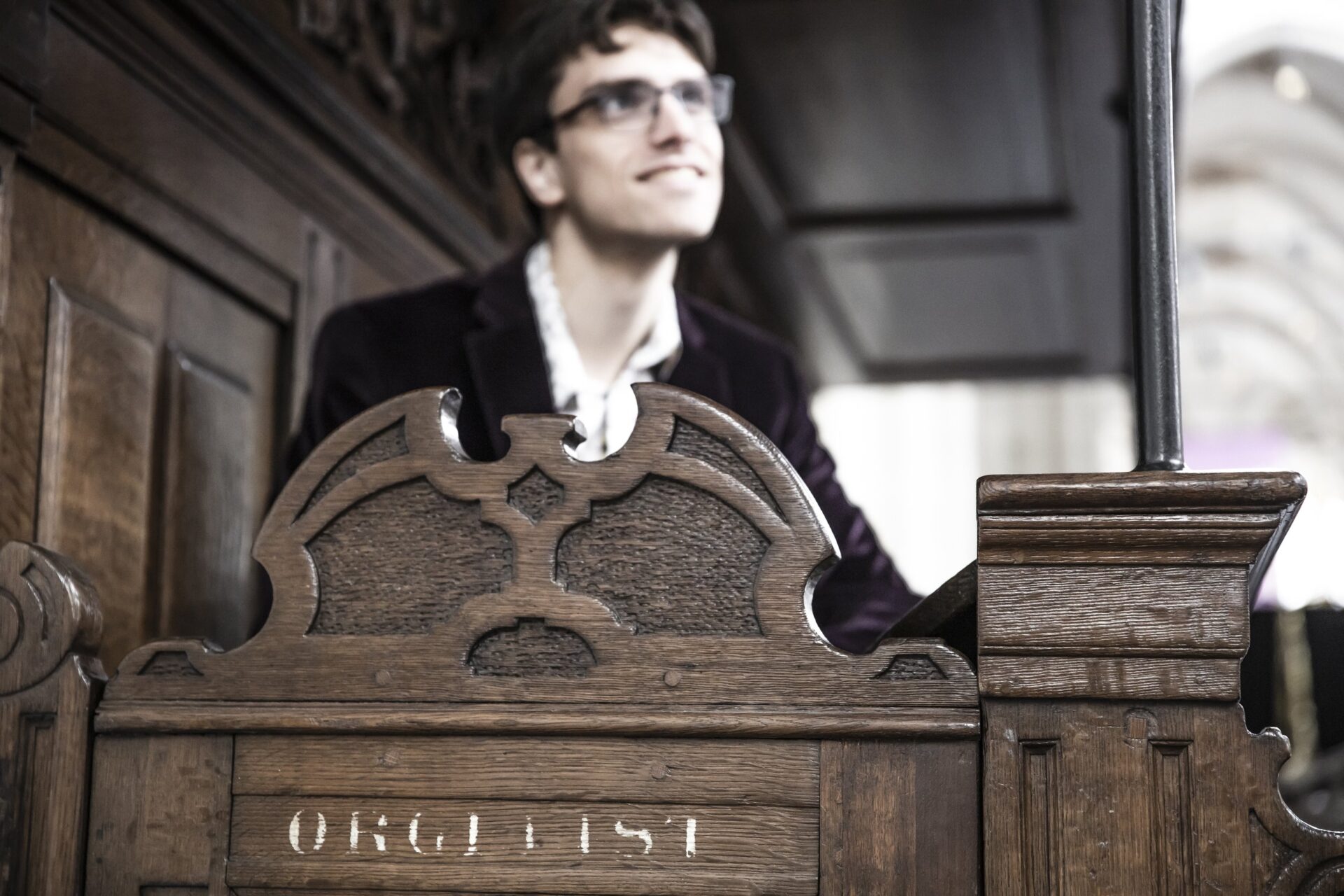On March 7, Laurens de Man will receive the Dutch Music Prize from the Secretary of State for Culture and Media, Mrs. Fleur Gräper-Van Koolwijk.
In the Orgelpark, almost the entire history of the organ can come to life. To celebrate this unique fact, the concert opens with a tour of four organs, in five compositions, provided with connecting interludes by tonight’s soloist. After a cheerful start by Susato, an anonymous medieval organ verse is heard, originally played alternately with the Gregorian Salve Regina. Far from ecclesiastical is the Scherzando by Gerard Bunk, the Rotterdammer who made a career in Germany as a pianist, organist, and conductor, sharing the stage with greats like Max Reger.
Olivier Messiaen is characterized not only by a unique style, full of ecstatic extremes, but also by beautiful French titles, sometimes of formidable length. The promenade ends with a peculiar historical amalgam: Bach’s virtuosic Sinfonia for concertante organ and ensemble, arranged for (a part of) the setting chosen by Paul Hindemith for his organ concerto. Fortunately, Bach himself was also not averse to arranging: he based this sinfonia on a violin concerto, which unfortunately was lost. He also transformed the same violin concerto into the Harpsichord Concerto in D minor (BWV 1052).
Padding: Reve Concerto
A selection from the mailbox:
From: Martijn Padding
To: Laurens de Man Date: Thu, Oct 19, 2023, at 8:53 AM Subject: Reve
Dear Laurens, I hope you are doing well.
I am about to start on the concert. I am now putting the final touches on a concerto for two trumpets and ensemble. My idea is to write a number of contrasting parts where your excellent play gets a nice chance to shine. (…) I have an idea. (…) I find it amusing that you are a Reve fan. The archaic and the idiocy of his work fits nicely with the liturgy and thus also with the organ. The idea that each part carries a Reve motto or quote seems interesting to me and a good starting point for composing. But I need you for that. Could you (if you feel like it, of course) send me 5 quotes or beautiful Reve sentences that can serve as subtitles for the different parts? What do you think of this idea?
Greetings, Martijn
From: Martijn Padding Date: Tue, Jan 9, 2024, at 10:32 PM Subject: Organ Concerto (Reve Concerto) To: Neweuropeanensemble, Laurens de Man Cc: Johan Luijmes
Dear gentlemen! as we speak, I am busy correcting the first part of the organ concerto titled: Organ Concerto (Reve Concerto). Three parts are finished now. I am working on it with great pleasure and hope it will touch some chords in you…
Emlyn, based on the score, you can easily estimate the potential complexities of the work. The solo organ part occasionally requires whirlwind speed but, as far as I estimate, poses no problem for our soloist. Complexity in the ensemble play is the irregularity of the meter and the precision that Padding inherited from Haydn. (…)
I hope that old salon organ that the SS seems to have entertained themselves with during WWII is a good match and willingly accompanies the NEuE!
And the best for 2024,
Martijn
Hindemith: Kammermusik Nr. 7
During the Roaring Twenties, Paul Hindemith wrote a series of Kammermusiken: compact, concertante music for various small ensembles. Crystal clear, to the point, with clear hints to baroque forms and polyphony: an antidote to the megalomaniac, derailed late romanticism.
There are few (living) rooms where the fourteen-member ensemble plus the soloing organ from Hindemith’s seventh Kammermusik would fit. The piece was therefore dedicated to the Frankfurt radio station and premiered at the inauguration of the new organ of the radio station. The piece kicks off with a cheeky march. As if the composer startles himself, a long, meditative, almost ethereal second part follows, after which the discipline of fugue forms is mixed with bold fanfares in the final part.




